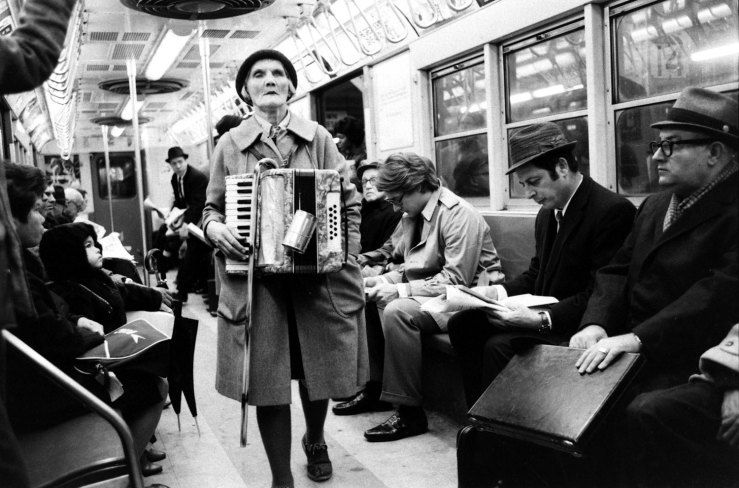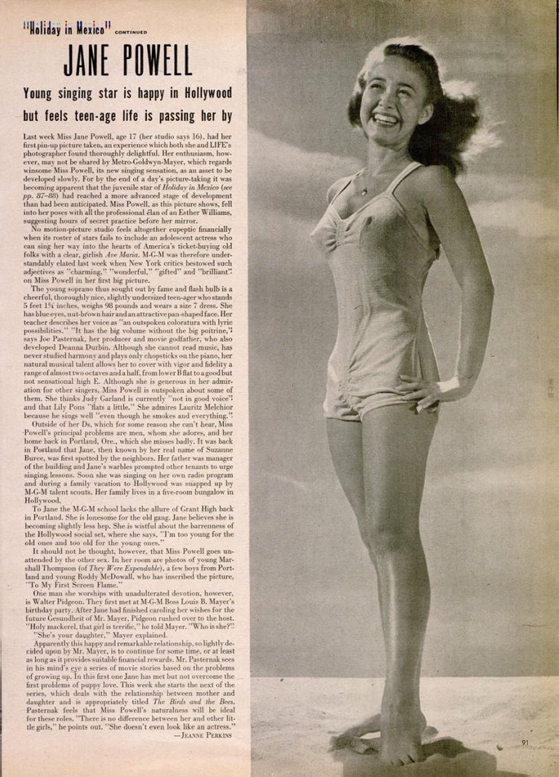I made up for the time I was alone
I grew up in Fort William, Ontario. It’s actually Thunder Bay now. At home, I was the only one, so, it was very lonely… it was quiet…. There were two rooms in the house, a kitchen and a living room. My father was a woodworker, a lumberjack. So, he would have periods of going to work, so it’d be three months at a time that he would travel. So, it was just my mother and me.
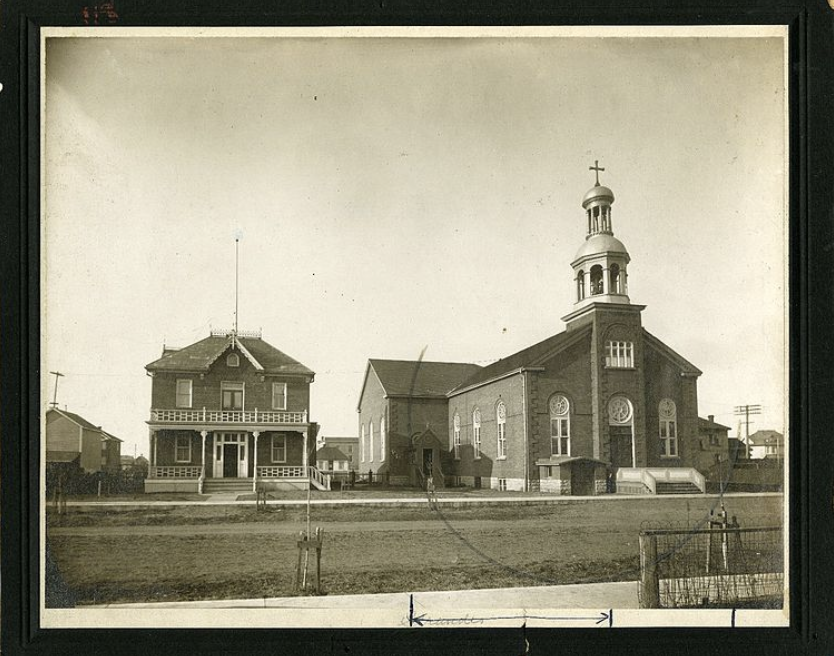
Bibliothèque et Archives nationales du Québec
When I was younger, I always thought that I’d get married at 25, that’s the time I thought I could marry. But I got married at 19. And I had my first child when I was 21. That was Chris. My daughter Chris was born. She was born in Canada. The others were born in America. I had eight children, wonderful children. I loved them all. Three boys and five girls. So, it made up for the time I was alone.
Childhood Memories
Tobogganing in my coat
The only time I got in trouble as a child was when I went in my good coat, with my friends. We went, like … what do you call that? tobogganing, that’s right. We went down this ski slope. Tobogganing with my friends after school. And when I got home, I got in real big trouble. I hadn’t ruined by coat, but it was my good coat.I shouldn’t have gone… so, my mother was very upset. I wore that coat most the time, that was my coat. So if I ruined it, it would have been a big deal. I was about nine years old when I got the coat, it was a brown coat.
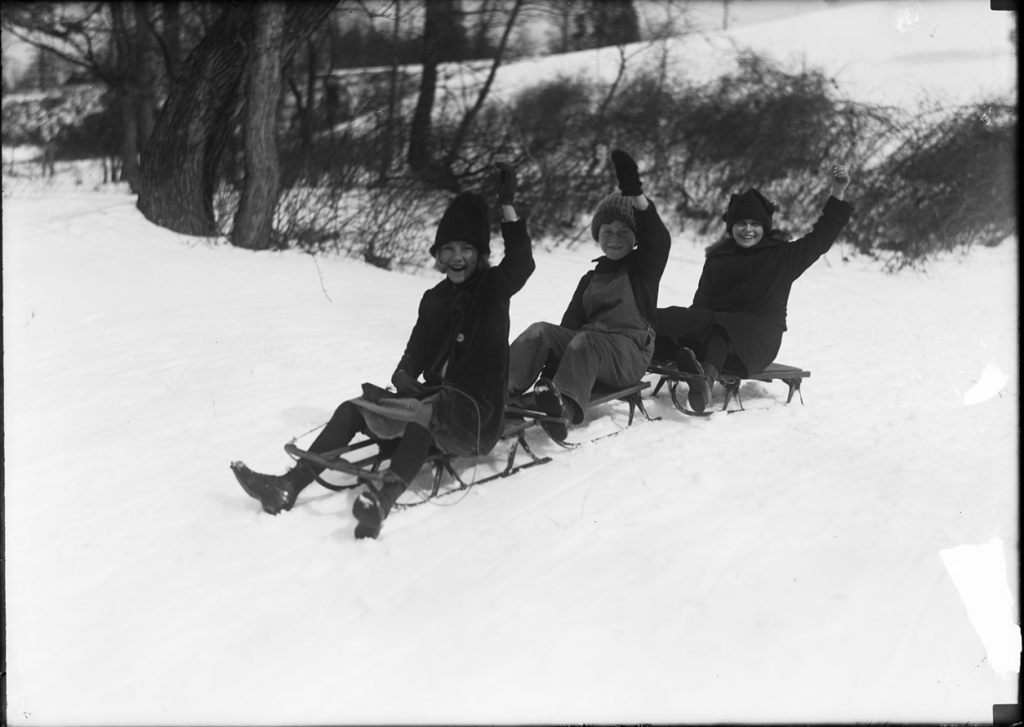
This was a hot pepper!
There was a time, when I was younger, we didn’t have supermarkets like now. There’s little stores. And my mother sent me to the store, and they would give you, you know, different packages. It wasn’t a sealed package, that you could open it and taste it.
So my mother sent me to get peppers, and this was a hot pepper. I wanted to taste it. And, it was very hot. It was a red pepper, yes…HOT. I got fooled at that time. There I go… back to my younger days now.
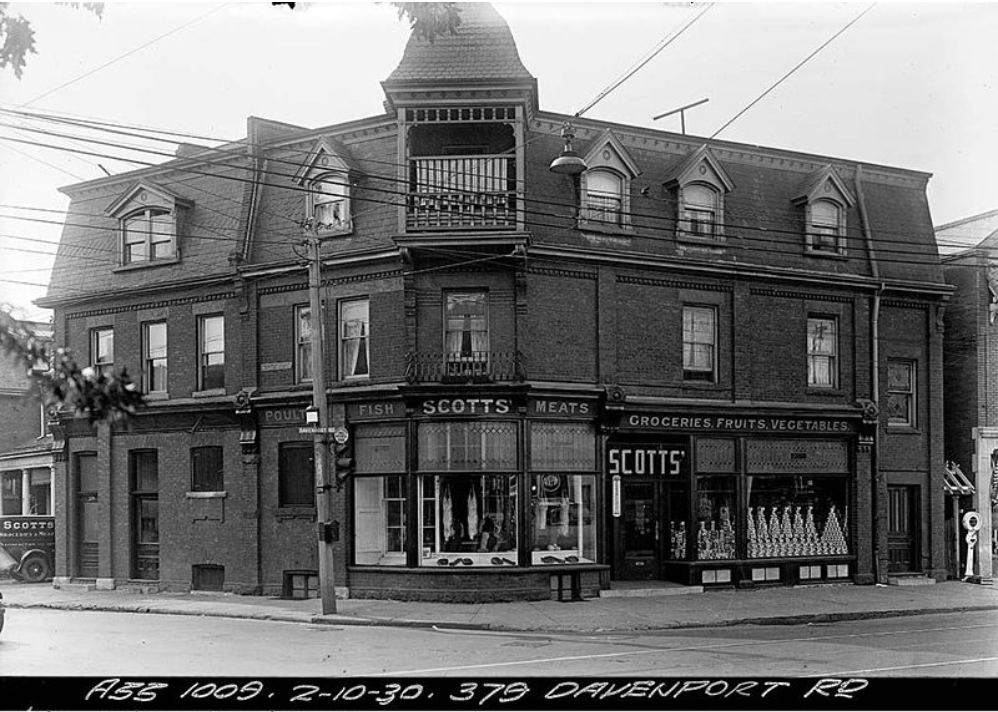
A different form of baptism
Oh, I think, I was little… I don’t know… what age I was but, it was like a bridge and, like, my parents… they worked in a… my mother was a cook at the camp and my father was a woodcutter, right… And, I think, at that time they would take me, because my mother was there… and they would take me, and… I think, I walked on a bridge that I went across but, I don’t remember… falling in.
I fell…fell off the bridge just walking, right… there was water… and, that’s the only thing… Maybe, that’s the reason that I don’t like water….
It was a very small body of water. It wasn’t that big, no. But, that’s the only thing… I don’t remember, like, somebody must have saved me because… I don’t remember, otherwise, anything.
A different form of baptism, I guess, right?
I don’t know, but I don’t care for water. If I have to travel, I’d rather the plane.
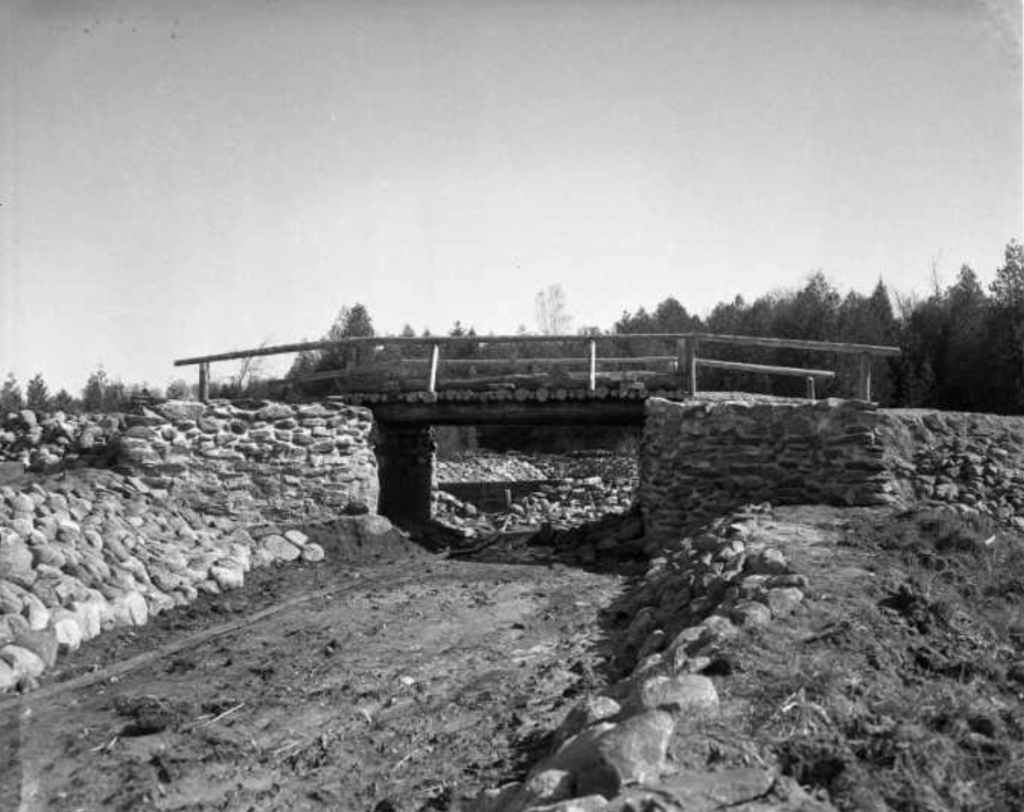
An extraordinary day at work
As a mother I would say most of the time I was with my children, working. Not working, I mean, taking care of the children. I was home most of my life. But after Giorgio was unable to work, I worked in the liquor store.
And I was held up once, at the liquor store. That was an extraordinary day! There were three girls, they were black, and a guy, right? The guy took me to a refrigerator and started asking me questions about the liquor, the wine, right? And in the meantime, the girls were upfront and they were taking all the good Champagnes, all the expensive Champagnes, and Brandy, they were all in the front. Then, I just felt something, you know, that something was wrong, so, I ran to the front… She had a Piper Champagne, and I was holding it, trying to pull it! I tried to pull it from her, right?
Nobody was around, even to see this! But, I wasn’t afraid. I was just trying to get that Champaign away. So, he was distracting me while they were stealing, right? I didn’t report it because nothing happened. I couldn’t do anything anyway, I didn’t know what they stole. But, I was lucky…otherwise.
At the liquor store, we’d got held up. Yeah, your dad always got held up. It happened quite a bit.
And, one time, when Johnny was there, they tied him up, yeah. That was bad. I had to go to the school… it was a parents thing, something like that was going on. In the meantime, I had to drop Johnny off at the liquor store, right, and his father was robbed. With a gun!
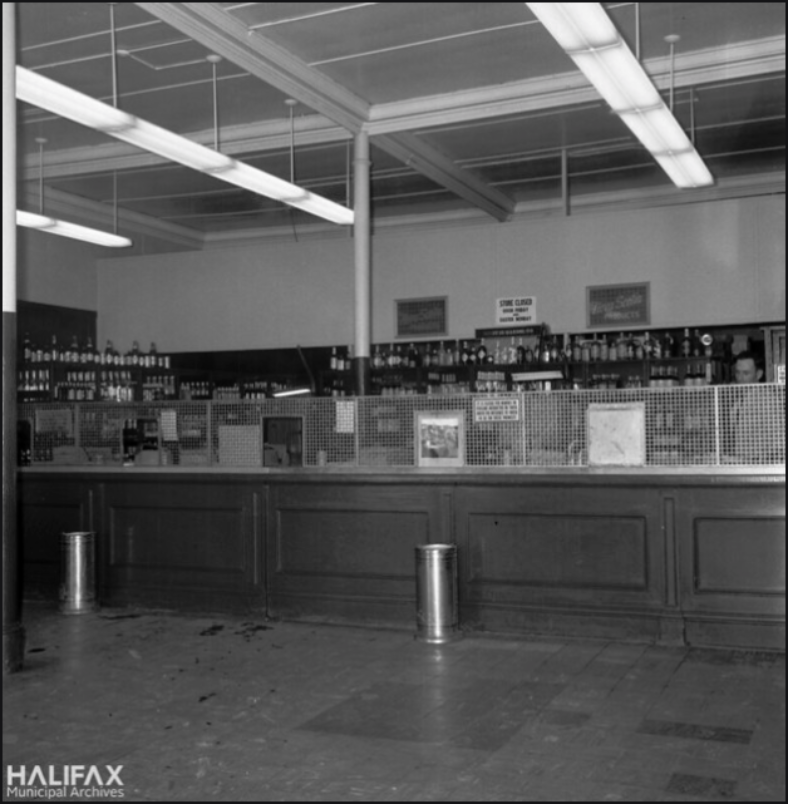
Young Love
Well, the first date… I wouldn’t call it a date because we had a banquet. You know, the Polish organization got together. That’s when I met your grandfather. We were dancing and that’s how I met him …and I loved his singing. That’s what I fell for, his singing. He had a great voice and I loved the singing. At the banquet, there were 90 of them! So, we had a great choice. Before that, us girls had no boyfriends… it was Polish heritage to get married!
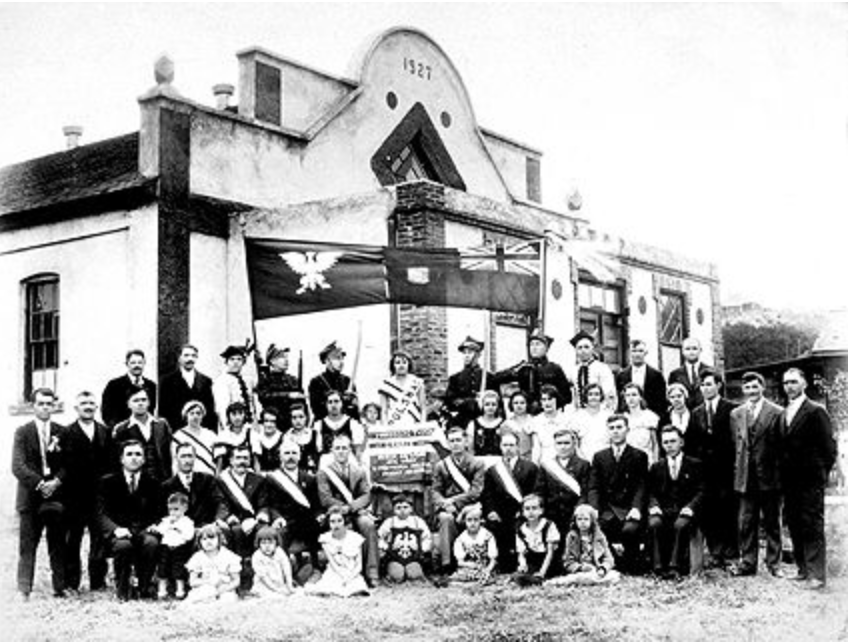
After the banquet, we had to go back to the farm. The banquet was in November and, then, in December, I saw him again because they told us, all the families, to invite them over for Christmas Eve. I didn’t think nothing of it. Not for a while. There were a couple of times that he came after that, and yes… and he would sing.
He had a beautiful voice, yes…Olivia has that voice but so does Ritchie and Holly, they had the voices like their father had. I was surprised that even Georgie said he was impressed by their voices. He said that.
I think, being with him I was more grown up, even though, it wasn’t. I think you could say, I was more of an adult. Because that’s what I would think about… making someone else happy now.
To Doug
I’d say that the secret to a successful relationship is sharing your love with each other and being there for the other person. Not being selfish, just about yourself, but sharing and taking care, and thinking about what the other person would love, and not being for yourself… that’s what I would say. Yeah. And, you are that. I just hope you do get a person that loves you as much too… and being, you know, sincere. That’s what I hope… because, you’re a wonderful person. You’re a wonderful person.
Flying in my dreams
Oh, the only dream that I remember was a dream of myself flying. And, planes… maybe, it was because of the war pictures and that, we saw…
And, it felt so good flying way up in the air.
And, I… in the dream…, they would try to get me, right? They couldn’t… I was just above them.
They couldn’t get me. I wasn’t on a plane flying, I was just flying. Myself, flying over… I loved that it felt so good, flying.






























